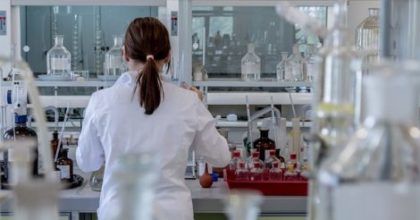
In a week when the popular-but-contrary-to-the-evidence theory that video games contribute to gun violence is making the rounds again, I’m finding it hard to be optimistic about public engagement with science. Yet according to the latest Pew survey results, public trust in scientists to act in our best interests is up in the United States. That trust has been trending upward since at least 2016 (the earliest year shown in that particular report). I have to admit, I found that result surprising. I personally don’t feel more trusted over that time period; if anything I’d say the opposite. Of course, my feelings matter very little; presumably more relevant are statistics on vaccine refusal or climate change skepticism. Are dissenting voices galvanizing the trust of the rest of us, or do the questions allow for a distinction between scientists generally and specific claims and inferences?
I found it interesting that practitioners such as dietitians are trusted more than researchers in the same field. Where do folks suppose that dietitians get their information if not from researchers in nutritional science? Maybe that’s the wrong question, however. Respondents may not be making such a direct connection. After all, the questions are about people, not information. I wonder if it is simply a matter of being more likely to know a dietitian than a research scientist. An individual I know is easier to trust than an abstract person I don’t. If that’s the case, how do we get more people to know researchers? That’s not to say all scientists are trustworthy and warrant even greater trust. The goal is not to achieve 100% confidence whether or not it is deserved. Rather, I’m curious what it would take to create more opportunities to develop trust where it is warranted.
I’m also curious what people have in mind when saying that scientists will act in the best interest of the public. Are we talking about doing their jobs well? Advocating for sound policies? Creating beneficial technologies? Technology is certainly one of the more visible outputs of science. So perhaps instead of or in addition to the personal dimension, respondents were expressing their trust in technology. The pace of technological progress in living memory is unavoidable. We’ve got smartphones and hybrid cars and medicines that all do more than was possible a decade ago. Expressing trust in scientists’ ability to advance technology would seem warranted then.
Finally, I wonder who counts as a scientist in the eyes of most folks. For example, Cambridge Analytica has made plenty of headlines in the past year, none of which were likely to engender trust. Do any of their employees register as scientists or do they all get lumped in as computer programmers? How about Uber or Facebook? I would definitely consider the data science and machine learning and artificial intelligence researchers at those companies to be scientists, and associate some of the concerns about those companies with their science. But maybe not everyone makes those connections. Or maybe, not unreasonably, those examples are considered outliers and not representative of all scientists.
I obviously don’t have any definitive answers. I just think it is interesting to explore what might go into responding to survey questions like these, especially when the results are surprising. I’d be curious to hear your own thought process regarding how you would respond to some of these survey questions. I’d also enjoy hearing how you engage with survey results in general, knowing that the necessary simplicity of the questions can sometimes encompass a lot of complexity.
Andy has worn many hats in his life. He knows this is a dreadfully clichéd notion, but since it is also literally true he uses it anyway. Among his current metaphorical hats: husband of one wife, father of two teenagers, reader of science fiction and science fact, enthusiast of contemporary symphonic music, and chief science officer. Previous metaphorical hats include: comp bio postdoc, molecular biology grad student, InterVarsity chapter president (that one came with a literal hat), music store clerk, house painter, and mosquito trapper. Among his more unique literal hats: British bobby, captain’s hats (of varying levels of authenticity) of several specific vessels, a deerstalker from 221B Baker St, and a railroad engineer’s cap. His monthly Science in Review is drawn from his weekly Science Corner posts — Wednesdays, 8am (Eastern) on the Emerging Scholars Network Blog. His book Faith across the Multiverse is available from Hendrickson.

Andy, great column, interesting questions!